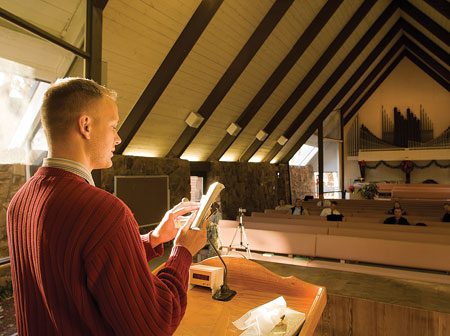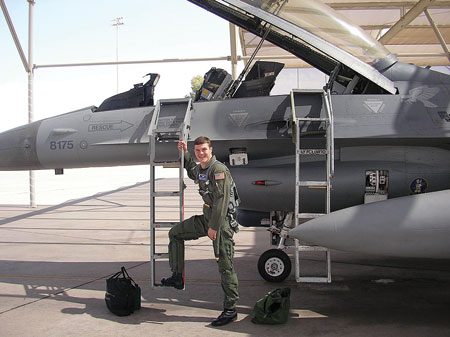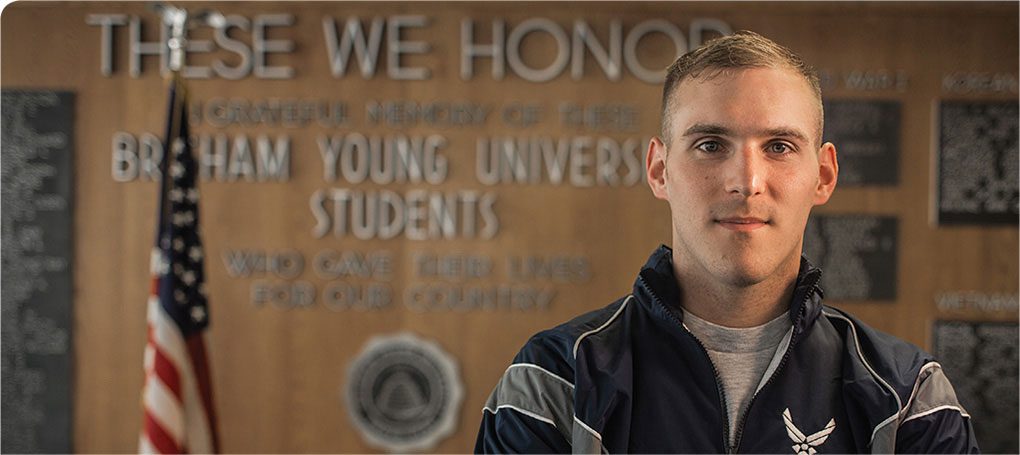A trailblazing BYU alumna had every reason to quit, but her dream kept getting in the way.
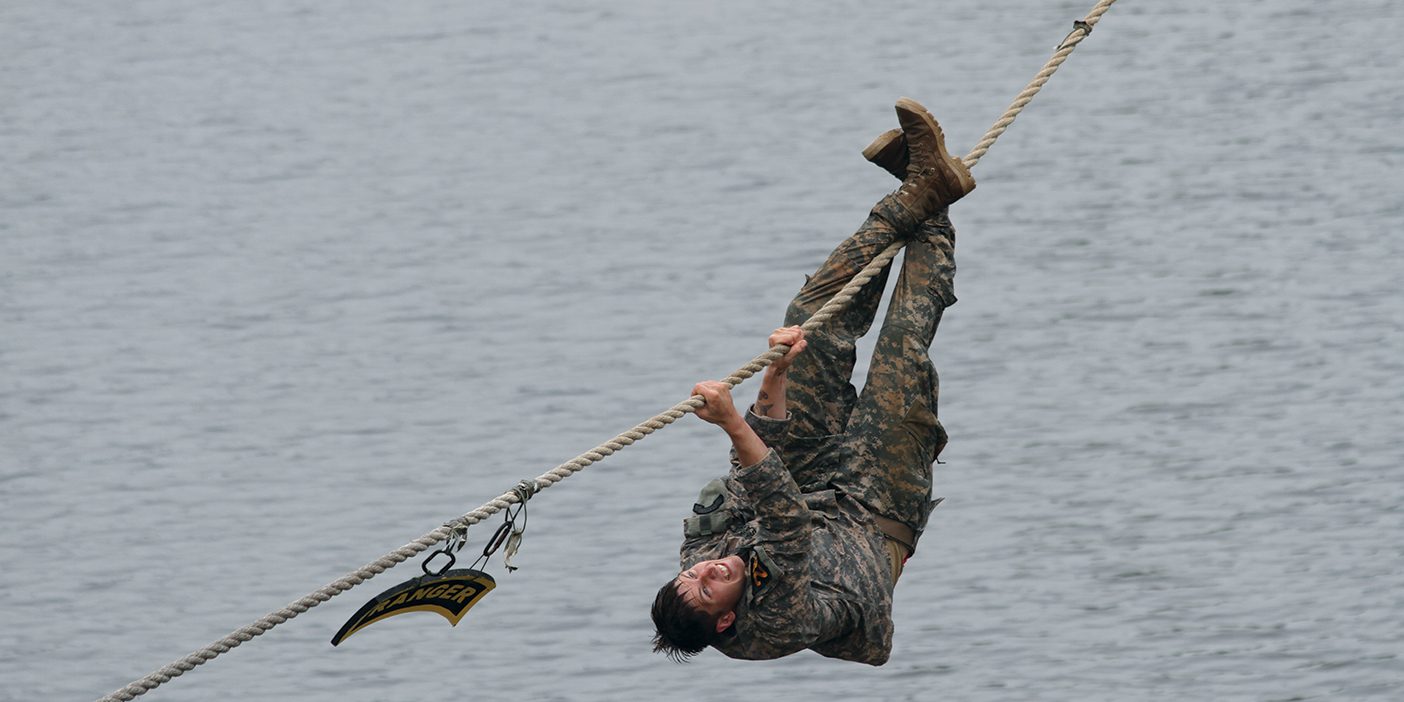
“If I fail, will that make me a failure?” wonders Anna Savage Hodge (BA ’16) to herself as she slogs through mud up a steep Georgia mountainside in early 2018. Under the burden of a rucksack and a weapon that together nearly equal the weight of her 120-pound frame, the first lieutenant has been marching for a week through record rainfall, her legs by then raw and bloody, oozing pus from the constant chafing of wet fatigues on skin. Trying to distract herself from her aching body, she counts every step. She prays and makes promises to God.
At Army Ranger School, where expectations run so high—and the physical and mental demands on a soldier are so punishing—no one reasonably expects to succeed on the first try. More than half don’t finish. By the time of her mountain hike in the mud, Hodge had already failed and had to repeat training sections—five times. And yet there she was, back at it.
Hodge didn’t hail from a military family. In her childhood she loved being in the outdoors near her Seattle home and challenging herself through physical fitness. The army just had a certain appeal. “I felt guided toward it,” she says. “As a kid, I loved decoding things, and my cousin would send me messages in symbols. I would count the number and frequency of all the letters and decode it.”
Hodge’s interest in linguistics began during high school in Utah, when she developed an attraction to Japanese. “It’s a beautiful-sounding language,” she says. “I’d go to the library and check out tons of grammar books and read them all.” She served a mission in Japan. And she majored in linguistics at BYU because the brochure she read said, “Good for military intelligence.”
“I wasn’t sure I was ready to let myself be vulnerable. I had a fear of failure. How could I possibly pass where [others] had failed?” —Anna Hodge
In 2010, while Hodge was still a BYU ROTC cadet, someone joked with her about shaving her head for Ranger training. The idea of attending Ranger training took root, even though it wouldn’t even be a possibility until 2015, when women were first allowed to participate.
Meanwhile, Hodge’s Army career moved forward: she graduated ninth nationwide among 5,575 ROTC cadets, did officer training, attended airborne school, went to Europe, and joined the 173rd Airborne Brigade in Italy, providing intelligence for an infantry battalion. As luck would have it, the unit was eager to support her dream of attending Ranger School.
Try, Try, Try, Try, Try, Try Again
Fear of failing haunted Hodge even before she began. Hodge’s good friend, like a brother to her, had attended Ranger School three times and failed three times. Soon after, he took his life.
“I was shocked,” Hodge says. She felt driven to attend Ranger School, but, she says, “I wasn’t sure I was ready to let myself be vulnerable. I had a fear of failure. How could I possibly pass where he had failed?”
And what about her prayers to know if she should go? “I had this confirmation that, yes, I should try to go and, yes, I’ll be able to make it,” Hodge says. But, she wondered, what would that do to her faith if she still failed?
At Ranger School success and failure are separated by a razor wire of luck and grit. If you have a weakness, the instructors will find it in the course’s three phases: Darby, Mountain, and Swamp. Darby (named after Camp Darby) is full of brutal fitness tests, night and day navigations, demolitions, combat operations, and patrols. Mountain involves mountaineering, surviving in the elements, and more patrols. Swamp tests the soldiers in waterborne and swamp operations in Florida.
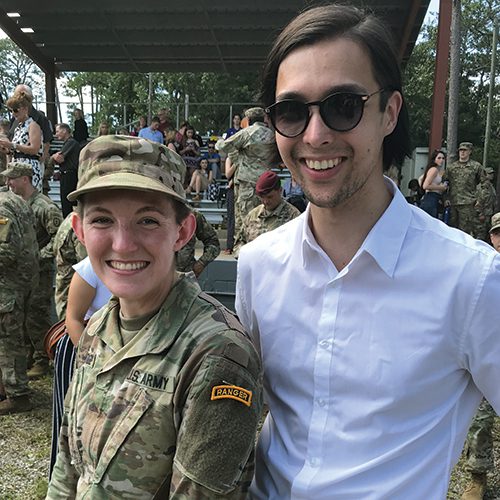
Failing any of the first week’s physical events—such as pushups, a ruck march, a combat water course—means being sent home immediately. Even after the first week, not performing any task well can mean failure. Using a light on a night march. Talking when not in leadership. Not properly executing an ambush or reconnaissance mission. Subordinates not obeying orders with exactness in spite of weeks of hunger and sleep deprivation. Failing means repeating a phase—called “recycling”—or worse, being sent home empty-handed.
Hodge failed and repeated Darby. When she failed again, she was dropped from Ranger School. “I was devastated and confused,” she says. “I confess I was a bit bitter. I didn’t want to have to start from the beginning, and things weren’t going the way I’d planned.” She took a resilience training course, which helped her bounce back from the failure and see it as part of the bigger picture. She would need these skills as she returned to Ranger School at the coldest time of the year, only to fail Darby twice more.
As a woman, Hodge felt an extra burden to prove that she could do something as difficult as Ranger School. She earned respect by volunteering for hard jobs like carrying a heavy radio or setting Claymore mines. Few women have passed the course, so she knew she was pioneering the way for women who would follow. “I find my gender has a tendency to underestimate what we can accomplish,” she says, “and I’ve done that to myself several times for sure.”
When, on her fifth try, Hodge finally passed Darby, she moved on to the Mountain phase during the winter, feeling confident she would pass. But she recycled again only to find herself in the rainiest and muddiest Mountain class of the year.
Maxed out physically and emotionally, she relied on prayer and blessings. “In between phases when I could go off post, I would ask my BYU friends in the area if they could give me a blessing,” she says. “And I remember a blessing my dad gave me that said that this will be something that I would be able to tell future kids or generations about that will have an impact on them as well. . . . So I had to just have faith in the answer I received and have the courage to go again.”
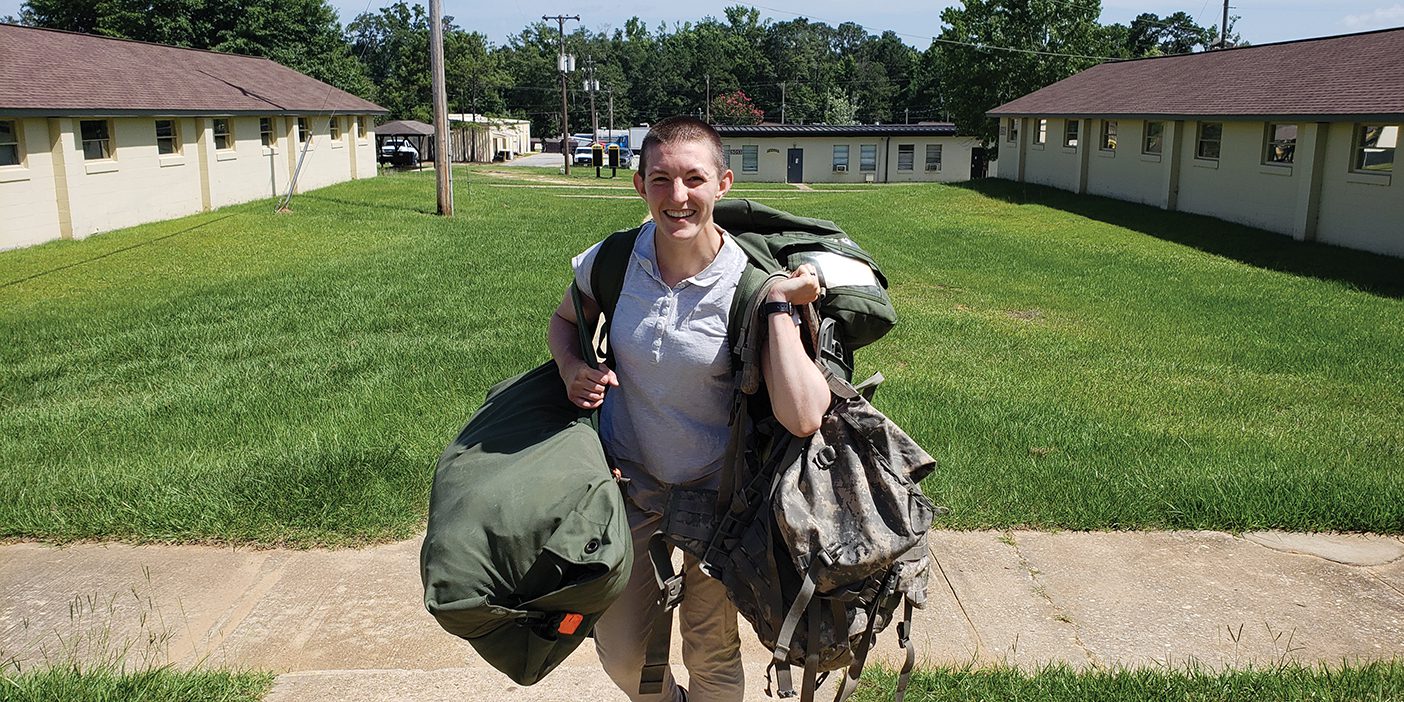
Summiting the Mountain
After passing Mountain Hodge then moved on to Swamp. Though poisonous snakes and alligators were no small worry, especially because the soldiers did their swamp movements at night, with no lights or night-vision devices, Hodge passed Swamp on her very first try.
After an eight-and-a-half-month marathon of scars and scares, of intense learning and long suffering, Hodge became a Ranger School graduate. Elated and exhausted, she was joined by her husband, Matthew, and family and friends on June 22, 2018, when she received her Ranger tab as the 15th woman, the first female “Sky Soldier,” and the only BYU female graduate to pass Ranger School.
How did she deal with the nagging fear of failure and achieve something so difficult? “You have to trust God and know that He knows what is best,” says Hodge. “All the difficult times and failures will work together for your good, so accept them. Build your relationship with God so that you know His will for your life. God has a path for everyone; it’s one that you build together. No one’s path will be the same. I’m grateful that Ranger School was part of mine.”










